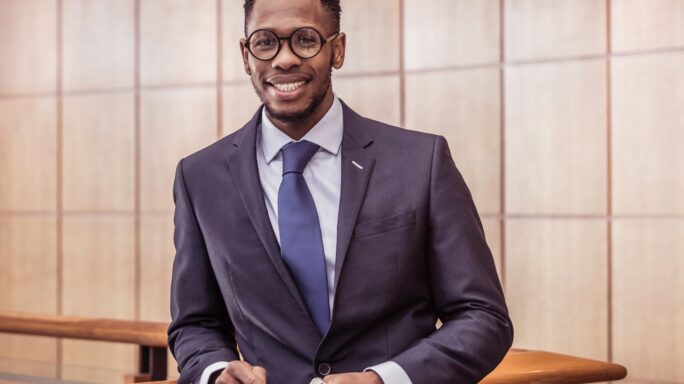Growth & Customers
The future of accounting has nothing – and everything – to do with technology
University curriculums are battling to keep up with the rapid advancements in accounting and bookkeeping technology. As a result, graduates are entering the workforce at a disadvantage and will have to take charge of their own education if they want to be successful business advisors. So says Nyemeko Njoli, a chartered accountant and chairperson of […]

University curriculums are battling to keep up with the rapid advancements in accounting and bookkeeping technology. As a result, graduates are entering the workforce at a disadvantage and will have to take charge of their own education if they want to be successful business advisors.
So says Nyemeko Njoli, a chartered accountant and chairperson of the Association for the Advancement of Black Accountants of Southern Africa (ABASA), speaking in a recent episode of the Sage #NextGenAccounting podcast.
“New apps and software solutions make accounting simple. When supported by artificial intelligence, these solutions perform many accounting functions faster – and better – than humans. The reality is, anyone can sell this technology, and businesses will go with the lowest price. Accountants need to differentiate themselves by figuring out how to complement these solutions. They need to learn new skills so that they can add value to their clients’ businesses beyond technology.”
Much to learn
Njoli recalls the days when he started his own consultancy. “I had an inkling that I could be a great businessman and sold the idea to my wife. The first two months were exciting – I even secured my first client. But then reality set in and I soon realised that running a business is not a natural skill – it’s something I had to learn. It’s not like being in a corporate environment, working for an established brand that already has clients and working systems and processes. Being on your own means you need to be able to sell yourself; you need to build your confidence to find clients.”
He says he didn’t learn any of this in school or at university – learning how to sell was something he had to teach himself. And quickly.
“When the clients weren’t coming to me, I realised I had to sell myself – and selling is a skill that doesn’t come naturally to accountants. No one teaches us how to sell. So, I had to navigate through that uncomfortable journey of not knowing what I was doing but also trusting my own learning process. I asked my own clients how they got clients, I watched YouTube and LinkedIn videos, I spent a lot of time at SARS figuring out their systems and processes. You can’t make a mistake with a SARS submission because it’s your client’s business on the line. None of this is in the theory we’re taught. I’m still learning. I’ve realised that there are no shortcuts – you have to get out there and learn.”
Practice of Now 2019
The latest research reveals evidence of a cultural shift within the industry as it prepares for the coming decade. Recruitment, skills and training, business practices, service offerings and technology are all evolving.

Bean-counter to consultant
Another skill Njoli had to learn fast was how to be a business advisor and consultant. He advises new accountants to first decide what sector they want to serve and what value they can add.
“Clients of large accounting firms have certain expectations, in terms of what reports they want to receive and by when. But businesses in the informal sector, where I work, have different expectations and perceptions of accountants. Most of their challenges are directly linked to the success of their business. My role now becomes more than delivering a report on time. I’m an advisor who helps them make a success of their business, by guiding them on strategy and trends.
“Many business owners in this sector survive month-to-month and don’t turn a profit. Their cash flow situation is precarious. For them, it’s not about the accounting package – taxi drivers don’t have time to click buttons and learn new systems. They don’t have the skills to manage their paperwork. That’s because accounting is not their primary focus. So, it’s up to me to make the accounting process as simple as possible – for example, by recommending easy-to-use apps. But the real value I bring to the table is the advice I give them – helping them to run their businesses better, to understand pricing, admin and quoting, and advising on how they can better interact with their customers.”
Changing perceptions
Njoli says there’s a perception in the informal market that an accountant’s role is to crunch the numbers, talk to the bank when a business needs funding, and get tax clearance certificates.
“As much as we need to educate ourselves, we also need to educate our clients, especially those in the informal sector. We need to show them how we add value to their daily operations and we need to tailor our approach to their needs, for example, by introducing them to easy tools. We need to build trusted relationships with our clients so that they know they can come to us for sound business advice, rather than just an accounting pack.”
“We’ve been taught that, as accountants, we’re going to arrive at a company and solve a certain problem. But, in the informal sector, some business owners might only have a Grade 4 education – it’s hard work convincing them to do things differently. Approaching them from a sustainability perspective and telling them what they need to do in order for their business to survive, is how you gain their trust. A lot of these businesses don’t understand cash flow and how it affects their business. One panel beater slashed his labour costs in half because he was trying to make me happy. In the end, it took twice as long to fix my car and he still had to pay his staff. He was operating at a loss. That was the perfect time for me to educate him about why he’s not making money – because he was under-pricing his service.”
Technology conundrum
He adds, however, that as much as it’s not about the technology, it has everything to do with the technology.
“We’ve become comfortable with the way things are in South Africa but that’s because we’ve been slow to adopt new technologies compared to international markets. But change is coming, and not enough people are investing the time to understand those changes, which means we can expect a lot of job losses. Industry bodies like SAICA are already changing the CFA exams to include topics like blockchain. Universities can’t keep up, so it’s up to us to make sure we stay current.”







Ask the author a question or share your advice